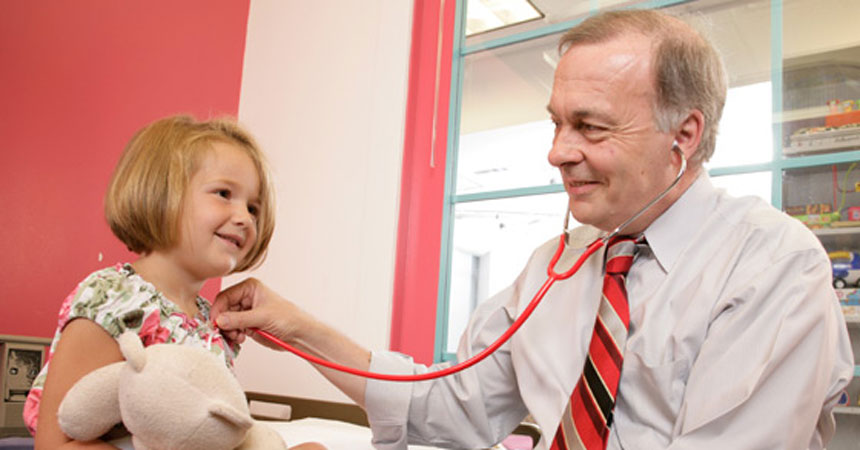What to do if you suspect your child has measles
Measles cases in the U.S. now exceed the highest number on record in a single year since the disease was eliminated in 2000.
There have been 673 measles cases of the vaccine-preventable illness reported in 22 states this year, including Texas, according to a preliminary tally of state and local health department data reported this weekby The Washington Post.
One of the most contagious diseases in the world, measles can lead to serious complications.
Dr. Paul Bowman, Chair of Pediatrics at UNT Health Science Center, answered questions about the disease and how to avoid it.
Q: What are the most essential things to do if you think you or your child has measles?
Dr. Bowman: Call your doctor. Stay home from work or school and avoid contact with young children or others who may be susceptible. Use common sense: Drink lots of fluids, take Tylenol per dosage recommendations, get plenty of rest, seek immediate medical attention for high fever, change in level of consciousness, respiratory difficulty or severe cough.
Q: If a person hasn’t been vaccinated, should they get a vaccination? What about women of childbearing age?
Dr. Bowman: People who have not been immunized against measles should get the vaccine.
Although there is no evidence that the vaccine poses risks to an unborn child, it is not recommended for pregnant women.
Q: What other measures can we take to prevent getting measles? What about babies too young for the vaccine?
Dr. Bowman: Avoid close contact with people who may have measles, or who have flu-like symptoms. Stay away from crowded places if there’s a local measles outbreak. Follow public health precautions that may be issued.
These recommendations also apply to babies not yet immunized. People who have a close exposure to a confirmed case may receive a preventive gamma globulin injection. This is not a true vaccine and does not confer immunity or guarantee that the child will not become ill.
Q: What do you say to parents who think vaccinations will harm their kids?
Dr. Bowman: Parents should be aware that the potential dangers to their child’s health is far greater in not being immunized than in receiving immunizations that are currently recommended by their doctors according to nationally approved guidelines. There is no evidence that the measles vaccine causes autism. Epidemics of measles can be devastating, with many lives lost and others with severe illnesses and resulting disabilities.




![Uyen Sa Nguyen Scaled[58]](https://www.unthsc.edu/newsroom/wp-content/uploads/sites/16/Uyen-Sa-Nguyen-scaled58-145x175.jpg)

Social media